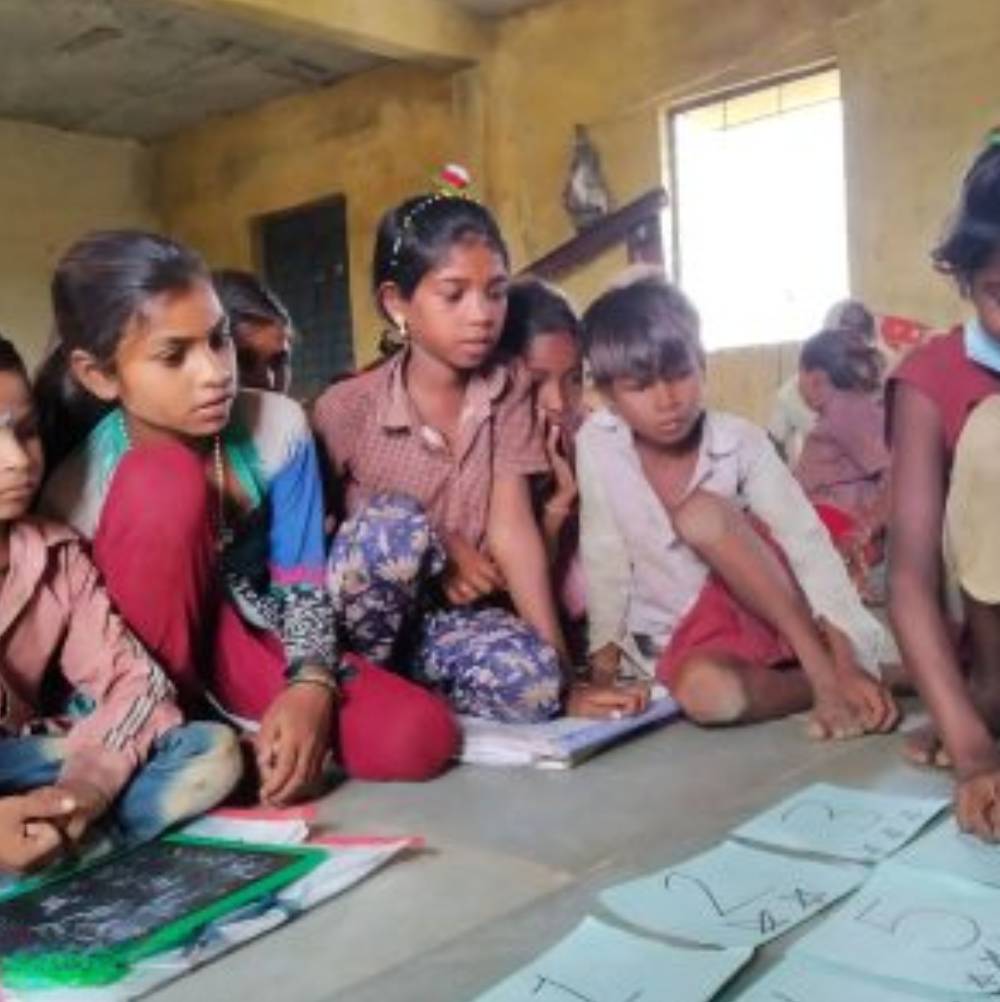- Finding Solutions, Stories from the Field
by Stuti Shrivastava

India has the exceptional achievement of having a primary school within 1km in 98 percent of its habitations. But the good progress on getting rural children to school is substantially lost with low retention and insufficient learning levels, essentially restricting future opportunities and prospects. This community-first approach to education aims to change that.
We have placed the community central in our efforts. Communities are largely perceived as being incapable of contributing to the learning of the children. It is kept alienated from the decision making process related to schools.
We are attempting to broaden engagement beyond mandated spaces like School Management Committees (SMCs) and Village Panchayat Education Committees. We are encouraging them to anchor off-classroom support to children, mobilizing parents and building an enabling print rich ambience in the village.
The effort thus focuses on working with community collectives, panchayats and its leaders to take responsibility and strengthen the local school system. Additionally, a cadre of socially motivated local women from within the community are being trained to encourage and support public system interface platforms like SMC.
Further engagement with school teachers attempts to augment their capacity and connects them with the community and panchayat leadership. Thus the theory of change revolves around triggering community action, better engagement of parent, and strengthening capacity of grassroots education systems.
Establishing community ownership and parental engagement with schools – which can bridge the existing trust deficit – has been the biggest challenge.
But we’ve worked hard at piloting initiatives – or “live labs” – in 11 blocks in Madhya Pradesh, Jharkhand and West Bengal, starting in 2017. In each block, engagement is anchored by the Education Resource Organization working closely with community collectives. TRI has entered into a formal agreement with the government of Madhya Pradesh to work with teachers and CRCs to create a supportive environment for this intervention.
As many as 731 community volunteers across 566 villages are engaged in strengthening schools and related processes in their villages. That’s a lot of children, parents, teachers and communities fired up about educations! A total of 192 village organisations comprising leaders from women self help groups have set targets for their respective village schools. In 56 villages, supportive learning spaces such as learning centres and libraries have been set up. School management committee (SMC) engagements have been regularised in 262 schools. Further 176 SMCs are connected with their gram sabha or panchayat where education-related concerns are routinely discussed.
A woman leader captured the genuine desire to change when she said, “We feel bad about our lives. If only we could have studied… We wouldn’t have been called gawar (ignorant). We don’t want our children to face this.”
And Ranjita Devi, a leader from Dewla village in Rajpur block of Madhya Pradesh, shared the importance of education too, “If children have knowledge and understanding, they live life with cleanliness, they can talk well with others and understand clearly what others say. They know what are the schemes and support available from the government and how to access these schemes.”
Reach us at
TRI Square,
43 Community Centre Zamrudpur,
Kailash Colony Extension,
Behind Hanuman Mandir,
New Delhi,
Delhi 110048
+91 11 43068096